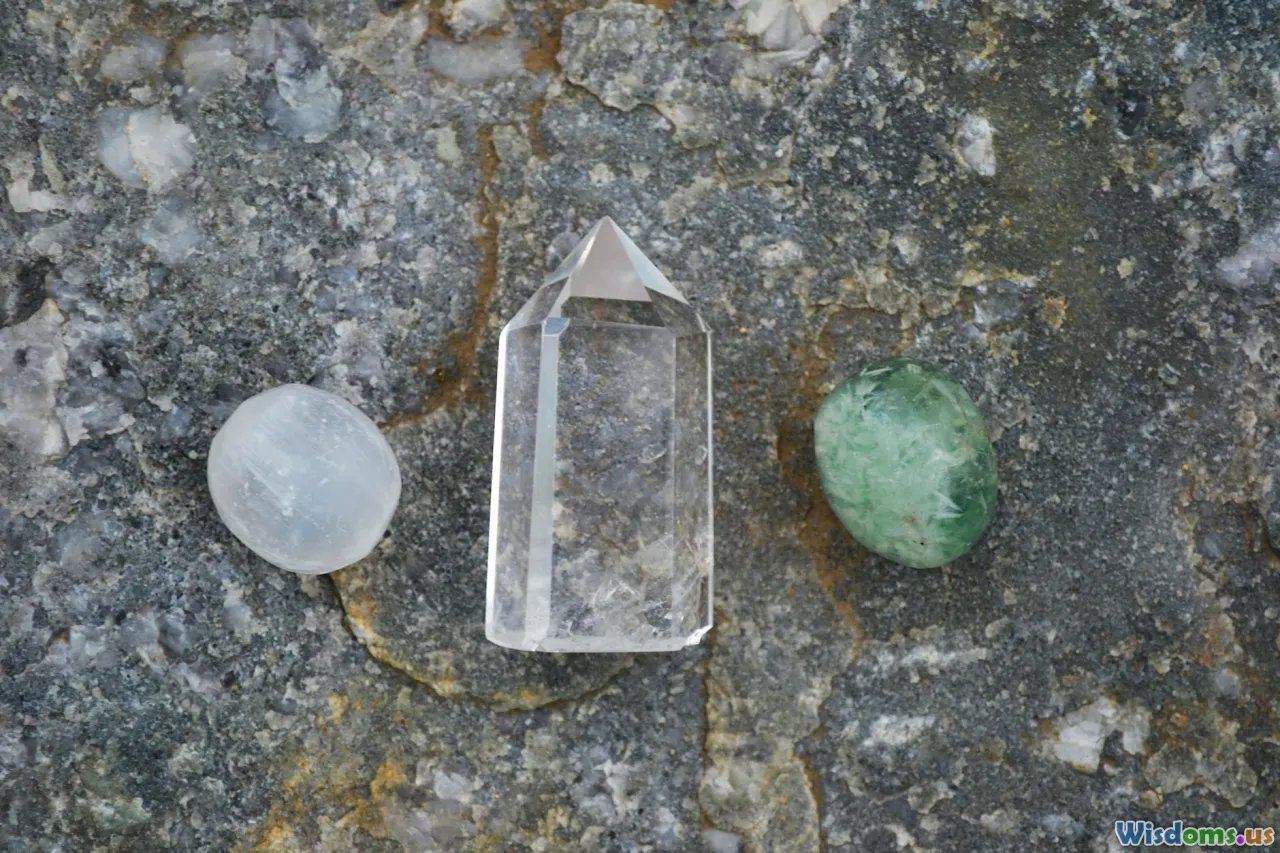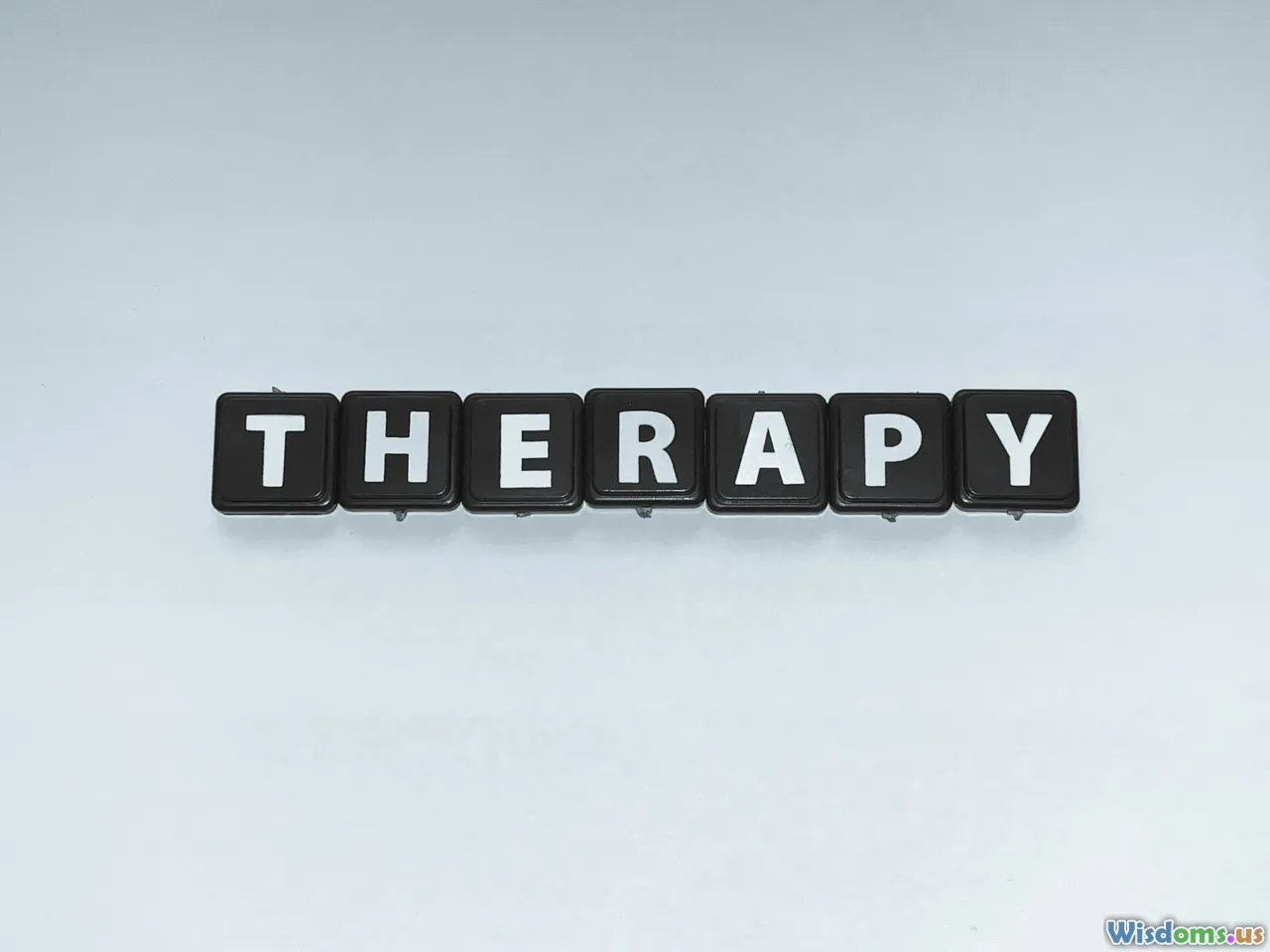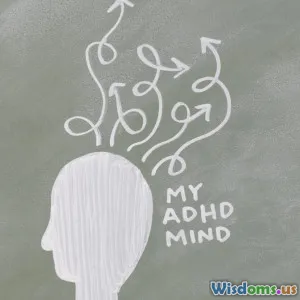
Recurring Water Dreams What They Really Reveal
16 min read Discover the deeper meanings behind recurring water dreams and what they might reveal about your emotions, subconscious, and life changes. (0 Reviews)
Recurring Water Dreams: What They Really Reveal
Sometimes, in the quiet hours of the night, our minds conjure vivid dreamscapes overflowing with symbolism. Water is one of the most prominent—and mysterious—elements in dream imagery, flowing through our unconscious in streams, floods, or tranquil lakes. But when water dreams recur, they suggest something more significant is calling for our attention. What does it mean when water continually surfaces in your dreams, and how can you interpret these nightly messages? Let’s plunge deep into the psychology, patterns, and personal revelations behind recurring water dreams.
The Deep Symbolism of Water in Dreams

Water is an ancient symbol in literature, art, and myth, often representing the subconscious mind itself. In dreams, water’s form, movement, and context enrich its meaning:
- Oceans & Seas: Vast, unpredictable, and powerful—an ocean dream often points to emotions on a grand scale, from overwhelming anxiety to spiritual possibility.
- Lakes & Ponds: Calm or placid waters mirror emotional poise, interiority, and self-reflection.
- Rain & Rivers: These elements can symbolize transitions, cleansing, renewal, or the steady flow of life experiences.
For example, Carl Jung, the pioneering psychiatrist, saw water as a symbol of the unconscious, suggesting that its depth and movement reflects the dreamer’s own emotional state. If you experience clear, clean water, it’s likely a good sign—symbolizing clarity, maturity, or healing. Conversely, murky waters may indicate confusion, suppressed feelings, or unresolved personal issues.
Why Water Dreams Recur: The Psychological Perspective

Dreams repeat whenever an internal issue remains unresolved or when our subconscious keeps returning to a theme for introspection. But why does water, specifically, recur for so many dreamers?
Emotional Processing
Much like water itself, emotions can be fluid, deep, or turbulent. Recurring water dreams often indicate strong or unexpressed feelings requiring attention. Maybe you’re facing a decision you’re unsure about or bottled up stress you haven’t addressed in waking life. Freud viewed recurring dreams as the mind’s way of working through “unfinished business.”
Trauma and Healing
People who have experienced trauma or emotional upheaval sometimes dream repeatedly of water. After a loss or major life change, water can manifest as tidal waves or floods, signaling attempts to process grief or adapt to overwhelming change.
Key Insights
- Patterns Matter: Drowned repeatedly? Is a storm never-ending? These specifics point to different emotional states. For instance, drowning may reflect fear of being engulfed by problems or emotion.
- Intensity & Recurrence: The more intense the dream and frequent the recurrence, the more urgent the message.
Types of Recurring Water Dreams and Their Meanings

Let’s analyze the most common recurring water dreams, using real-world examples and case studies.
Dreaming of Floods or Tsunamis
Floods signify emotional overwhelm, an inability to cope, or a situation “overtaking” the dreamer. Tsunamis, which often arrive without warning, may reflect sudden life changes or anxiety about uncontrollable circumstances.
Example: Lisa, a software engineer, dreamed of tsunamis each week after her promotion, reflecting hidden fear of new responsibilities washing over her.
Floating or Swimming in Calm Water
These soothing dreams suggest you’re at peace with yourself or currently navigating a challenge with resilience.
Example: After a period of therapy, Mark began dreaming of swimming calmly in turquoise lakes, aligning with his newfound emotional tranquility.
Drowning Again and Again
Recurring drowning dreams often point to a sensation of helplessness or emotional suffocation.
Advice: Ask yourself: Is there a pressure in your waking life you feel powerless to control? Identifying it is the first step toward clarity and resolution.
Contaminated or Murky Water
Dreaming of dirty or polluted water is common if you’re dealing with guilt, negativity, or hidden secrets. The water’s lack of clarity mirrors your own self-doubt or the confusion in a current relationship or situation.
Overflowing Bathtubs or Leaks
These smaller-scale water mishaps can reflect latent worries or things “leaking” into your conscious awareness—perhaps stress at work, or a need for better emotional boundaries.
The Science of Recurring Dreams: What Research Reveals

Contemporary dream research has revealed much about why certain themes repeat—and how water dreams, in particular, fit into the bigger picture.
Dreaming, REM Sleep, and Memory Processing
Most recurring dreams occur during the REM (rapid eye movement) phase of sleep, where the brain processes emotional events and stores long-term memories. Neuroscientific studies using MRI scans show increased limbic (emotional) activity during REM.
Common Scientific Findings
- Recurring dreams are linked to unresolved emotional conflict and are more common under stress or major changes.
- The imagery is often universal. Studies of diverse populations reveal common motifs in water dreams, suggesting certain anxieties are shared cross-culturally.
Case Study
In a 2005 study conducted by the University of Montreal, over half of respondents describing recurring dreams reported strong emotional events happening in tandem with their dream cycles. Water-related imagery (storms, flooding) was among the top three recurring dream symbols worldwide.
How to Decode Your Recurring Water Dreams

Interpreting recurring water dreams goes deeper than simply referencing a generic dream dictionary. Here are actionable steps—blending personal reflection and psychological analysis—to extract meaning from your dreams.
1. Keep a Dream Journal
Write down your water dreams as soon as you wake up. Track repeating symbols, feelings, and details. Over time, patterns will surface: Are the waters getting stormier or calmer? Are new elements appearing?
2. Connect Dream Symbols to Daily Life
Our nighttime minds communicate using symbols: Is the turbulent ocean linked to your busy work life? Does the recurring image of a serene river echo a newfound peace, or a desire for it?
Tip: Don’t just focus on the water—take note of who’s with you, what you’re doing, and your emotional state during the dream.
3. Look for Life Parallels
Major emotional events, like transitions, breakups, or career changes, usually precede shifts in recurring water dreams. Try matching your dreams to periods of stress, relief, crisis, or transformation.
- For example, if your recurring dream changed from drowning to sailing a boat, this shift might mirror your increased confidence in facing problems.
4. Seek Input, Not Authority
There’s no single, authoritative meaning for any dream symbol. Friends, therapists, or dream groups can offer new perspectives, helping you “see” the water symbol in a new way.
Cultural Interpretations: Myths, Legends & Religion

The symbolic power of water appears in nearly every culture. Mythology enriches understanding, adding layers of collective history to the recurring water dream experience.
Ancient Greece and Hinduism
- In Greek myth, the river Styx marked the boundary between the world of the living and the dead—crossing it was a journey to the subconscious.
- Hindu tradition views water as purifying and redemptive. Recurring dreams of swimming or bathing suggest a call for spiritual cleansing.
Christian, Islamic, and Indigenous Views
- In Christianity, water often symbolizes transformation and rebirth (think baptism, baptismal dreams).
- Islamic tradition views flooding with some apprehension: a test or a cleansing ordeal.
- Indigenous Australian beliefs tie water to ancestral lands and spiritual journeys—recurring water dreams echo calls to reconnect with inheritance or roots.
Folklore Examples
- Chinese folklore: Dreaming of clear water signals good fortune, while muddy or churning water warns of deceit or risk.
- African legends: Water spirits (Mami Wata, for example) link water dreams to fertility, destiny, or the need to heed intuition.
How Sleep Quality, Health & Lifestyle Impact Water Dreams

Sometimes, recurring water dreams might not only reflect your internal world but also signal a change in your health, nightly routines, or general lifestyle.
The Sleep-Stress-Water Dream Connection
When sleep is disrupted, the likelihood of recurring or more vivid dreams increases. Poor sleep hygiene and high stress levels often go hand in hand with dreams featuring turbulent or excessive water.
- Case: People under chronic stress are more likely to report dreams of dark, stormy, or dangerous waters. Addressing sleep deprivation may lessen the frequency or severity of dream recurrences.
Improving Sleep to Help Your Dreams
- Respect your evening routine: Avoid stimulating content before bed—opt for reading, gentle music, or meditation instead.
- Hydrate, but wisely: Drinking too much right before bed can trigger physiological responses—it’s best to find balance.
- Self-care & therapy: Sometimes, recurring water dreams flag mental health concerns. If anxious themes persist, professional counseling or mindfulness practices can help decode (and ease) troubling dreams.
Tips to Transform Recurring Water Dreams

Recurring water dreams aren’t just signs—they’re invitations for growth or healing. Here’s how to respond constructively when water dreams keep returning.
1. Face the Water, Don’t Run
Instead of resisting or fearing these dreams, let them play out fully in your mind, whether while lucid dreaming or journaling. Visualize moving safely through the flood or floating confidently atop stormy waves. Give yourself agency in the dream world—and watch for changes in both dream and waking life.
2. Practice Emotional Release
Find healthy outlets for emotion—journaling, talking to trusted friends, art, or even cathartic exercise like swimming. This aids in resolving underlying issues the recurring water may be highlighting.
3. Reframe the Dream
Assign new, empowering meanings to your recurring dream symbols. If the deluge used to mean loss of control, can it now symbolize a powerful clean-slate moment? Many people have found that by intentionally reframing their dream narratives, their recurring dreams either stop or transform into more positive ones.
4. Embrace Water—Literally
Engage with water in waking life to prompt subconscious integration: Take conscious, calming baths, go for mindful swims, or simply spend reflective time by the ocean or lake. This physical connection can ground unresolved emotions.
When to Seek Professional Dream Guidance

While most recurring water dreams are natural and part of your personal growth, there are moments when outside help is warranted:
- If the dreams are distressing, lead to insomnia, or spark anxiety that affects your daily life.
- If traumatic water-related events in waking life make processing these dreams painful on your own.
- If symbolism becomes too overwhelming to interpret alone.
All therapists are trained to help, but some counselors specialize in dreamwork, which links modern psychology with ancient symbolic interpretation. They may guide you through imagery rehearsal, narrative re-storying, or depth analysis to help you unlock both the warning and wisdom of your recurring dreams.
Recurring water dreams are more than nightly curiosities. They are a profound, personal current flowing between your psyche and daily life, carrying messages that, when interpreted with insight and compassion, can catalyze healing and growth. Whether your dreams lift you gently on calm waves or catch you in torrential emotional storms, they remind you that the mind's deepest waters are well worth exploring.
Rate the Post
User Reviews
Popular Posts




















